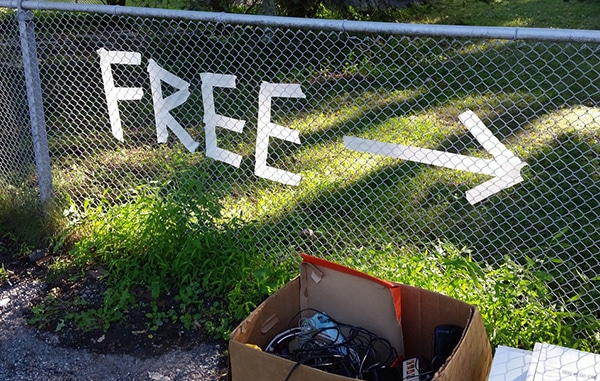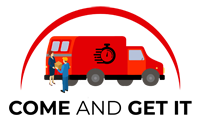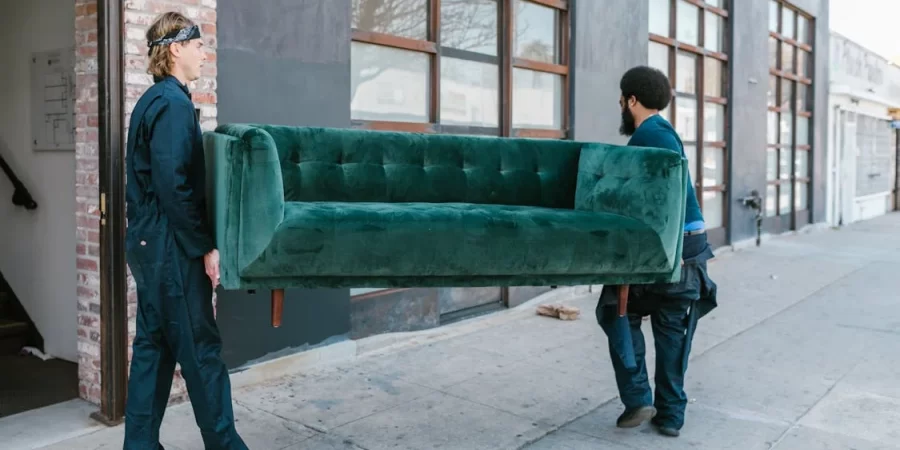There are huge economic benefits of giving away free stuff and we will explore those benefits in this blog post. We all know there’s a war on waste going in the world. In the western world we produce and buy too much stuff. We live in a consumer society where we’ll buy something better, even if we don’t need it. We have been living in a ‘disposable’ mindset rather than a share, reuse, repair, refurbish or recycle mindset like our grandparents had.
Today, things are changing, and sustainability is a buzz word we have all come to learn about through necessity. We’re killing our world and not doing anything about it fast enough.
‘Come and Get It,’ our free online marketplace, offers a unique opportunity to contribute to the economy while supporting sustainable practices. By giving away items like clothing, furniture, toys, and sporting gear, you can play a key role in promoting a circular economy. Let’s explore those economic benefits of giving away free stuff and how it can positively impact our economy, community and environment.
Embracing the Sharing Economy
The sharing economy is all about using resources more efficiently. When you give away items on ‘Come and Get It’:
- Saves Money: Recipients save on purchasing costs, donors can declutter without paying disposal fees, and local councils can save on collection, recycling and landfill costs.
- Reduces Waste: Unwanted items find new homes, reducing landfill waste and recycling centres.
- Encourages Community Building: Sharing fosters a sense of community, creating connections and promoting trust among users.
Supporting the Circular Economy
A circular economy aims to minimise waste and make the most of resources. Here’s how giving away items supports this model:
- Promotes Reuse: Items that might otherwise be discarded are reused by someone else, extending their life cycle.
- Reduces Demand for New Products: Less demand for new items leads to fewer resources being used in manufacturing, which benefits the environment and economy.
- Encourages Innovation: The focus shifts towards sustainable and durable product design, driving economic growth in eco-friendly industries. This also helps to get away from our disposable tendencies that have developed over the past years.

Economic Benefits for Sustainability
Giving away items can have a broader impact on economic sustainability:
- Decreases Manufacturing Costs: Reusing products lowers the need for new raw materials, reducing production costs for manufacturers.
- Supports Local Economies: Free marketplaces keep goods circulating within the local community, which can support local businesses and services. If something can be obtained free of charge, there is extra money to spend on the item, if necessary, like dry cleaning, hanging, assembly, and even refurbishment.
- Increases Consumer Savings: People save money by receiving free items, which can then be spent on other local services and goods. With many families currently feeling the pinch due to high cost of living, getting some items cost free is a huge bonus and allows more money to be spent on necessities like food and power.
Boosting Awareness and Participation in Sustainable Practices
By participating in a free marketplace, you help raise awareness about sustainability and economic resilience:
- Educational Opportunities: Sharing goods fosters a culture of mindfulness about resource use.
- Encourages Eco-friendly Choices: People are more likely to make sustainable choices when they see the tangible benefits of reusing and sharing.
- Reduces Carbon Footprint: Fewer new items mean less energy used in production and fewer emissions, helping to combat climate change.
Join the Movement with ‘Come and Get It’
Be part of the change. Giving away free items on ‘Come and Get It‘ is more than just a way to declutter. It’s a step toward a more sustainable and economically vibrant future. Together, we can make a difference!


Leave a Reply